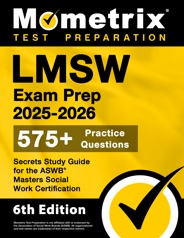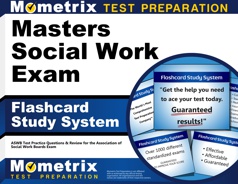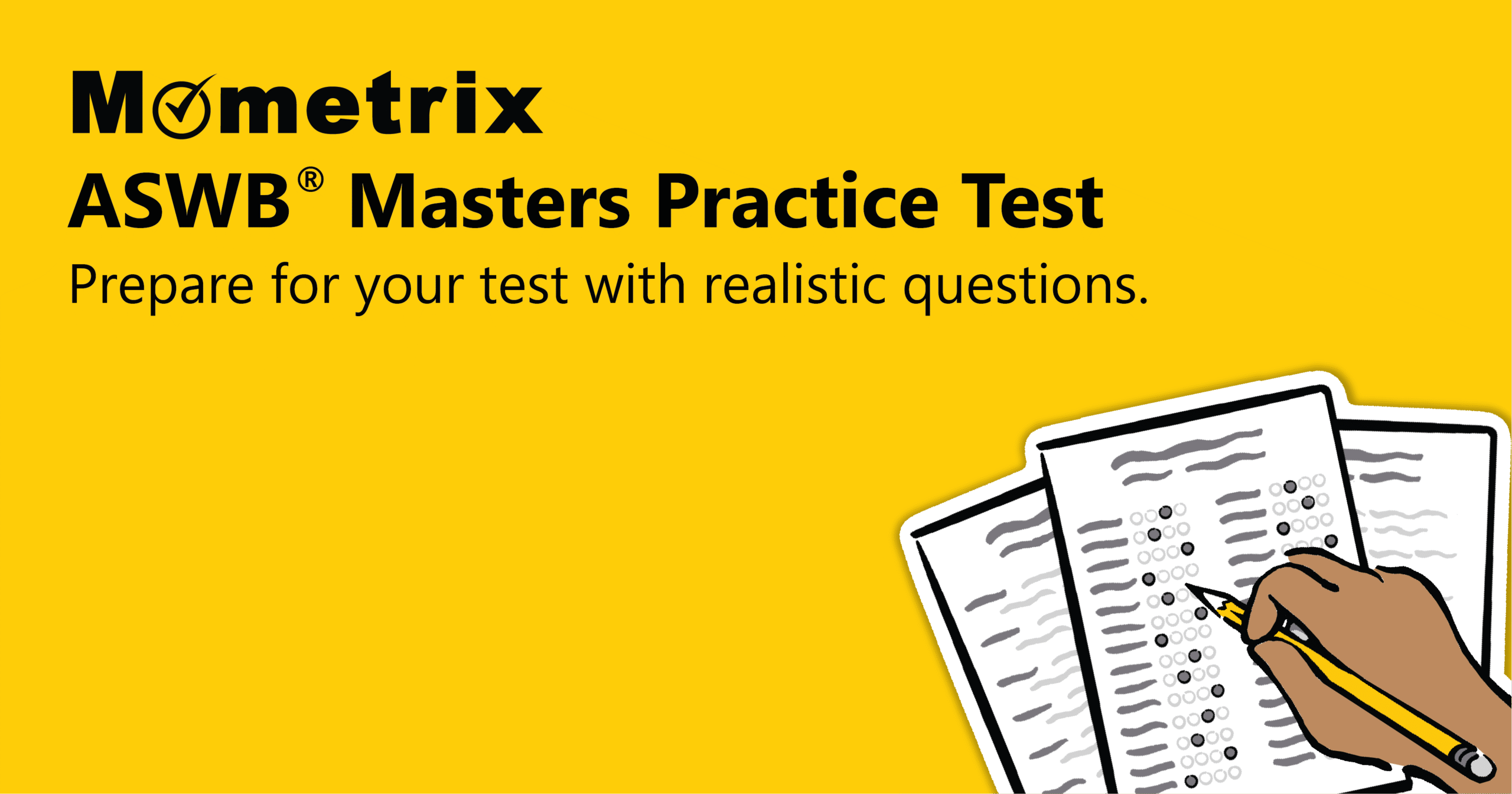The Association of Social Work Boards® offers licensing exams at multiple levels. The Masters Exam is required in all US states and territories as well as some provinces in Canada. It’s an important step on your way to a career in social work.
Click ‘Start Test’ above to take a free practice test!
Registering for the ASWB Masters Exam
You first need to contact the licensing board in your jurisdiction to find out for sure whether you even need to take the ASWB® Masters Exam. If you do, you will next need to provide proof that you are eligible to take the exam.
While the test is the same no matter where you take it, the eligibility requirements differ from jurisdiction to jurisdiction. Once you establish that you meet local eligibility criteria, the board will give you a notice of approval.
You use this notice of approval to schedule your exam at your nearest Pearson VUE testing center. When scheduling the exam, you will have to pay the $230 exam fee. The test is offered continuously so you will be able to make an appointment that is compatible with your schedule.
Check Out Mometrix's ASWB Masters (LMSW) Study Guide
Get practice questions, video tutorials, and detailed study lessons
Get Your Study Guide
Test Contents
The ASWB Masters Exam includes 170 questions spanning four core aspects of a career in social work. Those four aspects include:
I. Human Development, Diversity, and Behavior in the Environment
Human Growth and Development: This topic includes the impact of body image; various developmental theories, including sexual development and spiritual development through the lifespan; the impact of loss, separation and grief; gerontology; and the effect of aging parents on adult children.
Concepts of Abuse and Neglect: This topic includes details about interpersonal relationship dynamics, theories of crisis intervention, social change and community development theories, conflict theory, and criminal justice systems.
Diversity, Social/Economic Justice, and Oppression: This topic contains concepts of sexual orientation; how the transgender and transitioning process impacts behaviors, attitudes, identity, and relationships; and feminist theory.
II. Assessment and Intervention Planning
Biophysical History and Collateral Data: This topic covers sexual dysfunction indicators, obtaining sensitive information, and how to assess clients/client systems.Assessment Methods and Techniques: This topic covers psychosocial stress indicators, behavioral dysfunction indicators, methods of data collection and analysis, and mental and emotional illness indicators.
Intervention Planning: This topic covers trauma-informed care theories, objective and subjective data principles and features, and research design and methods (both basic and applied).
III. Interventions with Clients/Client Systems
Interventions Processes and Techniques for Use across Systems: This topic covers interviewing principles and techniques, role play technique, anger management issues, assertiveness training, permanence planning, partializing techniques, and consultation approaches.Interventions Processes and Techniques for Use with Larger Systems: This topic covers service delivery methods, social policy development and analysis, networking methods, fiscal management techniques, and the effects of program evaluation findings on services.
IV. Professional Relationships, Values, and Ethics
Professional Values and Ethical Issues: This topic covers social work legal and ethical issues, identifying and resolving ethical issues, and several legal and ethical issues, including dual relationships, termination, and death and dying.
Confidentiality: This topic covers using client records, information security, and mandatory reporting.
Professional Development and Use of Self: This topic covers staying objective, maintaining a safe work environment, and mastering self-care techniques for social workers.
All questions are geared toward assessing your capacity to deal with the unique challenges and day-to-day demands of social work.
Check Out Mometrix's ASWB Masters Flashcards
Get complex subjects broken down into easily understandable concepts
Get Your Flashcards
LMSW Online Prep Course
If you want to be fully prepared, Mometrix offers an online LMSW prep course designed to give you everything you need to succeed!
Here’s what you’ll find in the LMSW course:
Everyone learns differently, so we’ve tailored the LMSW online prep course to ensure every learner has what they need to prepare for the LMSW exam.
Click below to check it out!

ASWB Masters Pass Rate Analysis (2022)
The Association of Social Work Boards published an analysis of the pass rate for the Masters exam in 2022. The board analyzed testing and scoring information from 2011-2021, including statistics related to gender, race, age, and primary language.
In a nutshell, the analysis revealed that 86% of everyone who took the ASWB Masters exam between 2011 and 2021 eventually passed the exam. The age group with the highest pass rate is 18- to 29-year-olds, at a rate of 86%. According to ASWB’s data, more women have passed the exam than men, more people passed whose primary language is English, and the demographic group with the highest pass rate is whites.
Here are the details of the analysis.
Age
The breakdown of age categories and their pass rates (2018-2021) according to the ASWB is as follows:
- 18-29: 86% pass rate
- 30-39: 77% pass rate
- 40-49: 70% pass rate
- 50+: 62% pass rate
Race
The breakdown of race categories and their pass rates (2018-2021) according to the ASWB is as follows:
- White: 91% pass rate
- Multiracial: 85% pass rate
- Asian: 76% pass rate
- Native American/Indigenous peoples: 72% pass rate
- Hispanic/Latino: 71% pass rate
- Black: 52% pass rate
Gender
The breakdown of gender categories and their pass rates (2018-2021) according to the ASWB is as follows:
- Female: 79% pass rate
- Male: 78% pass rate
Primary Language
Test-takers whose primary language is English have a pass rate of 80%, while test-takers whose primary language is not English have a pass rate of 63%.
Historically Marginalized Groups
The data from 2011-2021 reveals that members of historically marginalized groups taking the ASWB Masters exam increased by 12%.
FAQs
Q
What should I bring with me on test day?
A
All you need to bring is two forms of ID, at least one of which is a current, government-issued photo ID. The test is computer-administered so everything else you need will be provided for you. You cannot bring any personal items into the exam room with you so it’s best to just leave your things in your car.
You will have about four hours to complete all four sections of the test. But you should also plan to arrive about 15-30 minutes early in order to check in so expect to be at the testing center for about four and a half hours altogether.
As mentioned earlier, the test includes 170 questions but only 150 of those questions are scored. The remaining 20 are unscored questions being tested for possible inclusion on future versions of the exam. You won’t know which ones are the unscored questions, however, so you should be ready to do your best on all 170 questions.
Q
What is the minimum score needed to pass?
A
The score is scaled according to the difficulty of the questions that you receive which depends on the version of the exam you are taking. Because of this variability, the minimum number of correct answers you need could be as little as 93 or as much as 107.
Since you have no control over which version of the exam you will receive, it is best to set your target above 107 and create a study plan around that goal. This will increase your chances of achieving the minimum passing score no matter which version of the test you take.
Fortunately, your exam results are valid across all states and territories so you won’t have to take the exam again if you choose to work in a different state.
Q
What is the best way to prepare for the ASWB exam?
A
Since this is a content-driven exam, the bulk of your study time should be spent reviewing all the material that will be covered and then improving your ability to recall that information on command. You should also schedule periodic practice tests to familiarize yourself with the kinds of questions that will be asked and the structure of the exam.
For the review, you need the Mometrix Study Guide. This comprehensive guide contains a detailed yet super focused overview of all the content across each subject of the test. It also provides effective strategies for getting through difficult questions including how to detect context clues, avoid traps or tricky phrasing, and find the answer through a process of elimination.
To further improve your absorption of the material and work on your ability to instantly recall information, pick up the Mometrix Flashcards. All the core concepts from across the different subjects are condensed into easy to understand explanations for quick review.
ASWB and Association of Social Work Boards are registered trademarks of the Association of Social Work Boards. Mometrix Test Preparation is not affiliated with or endorsed by the Association of Social Work Boards (ASWB).





